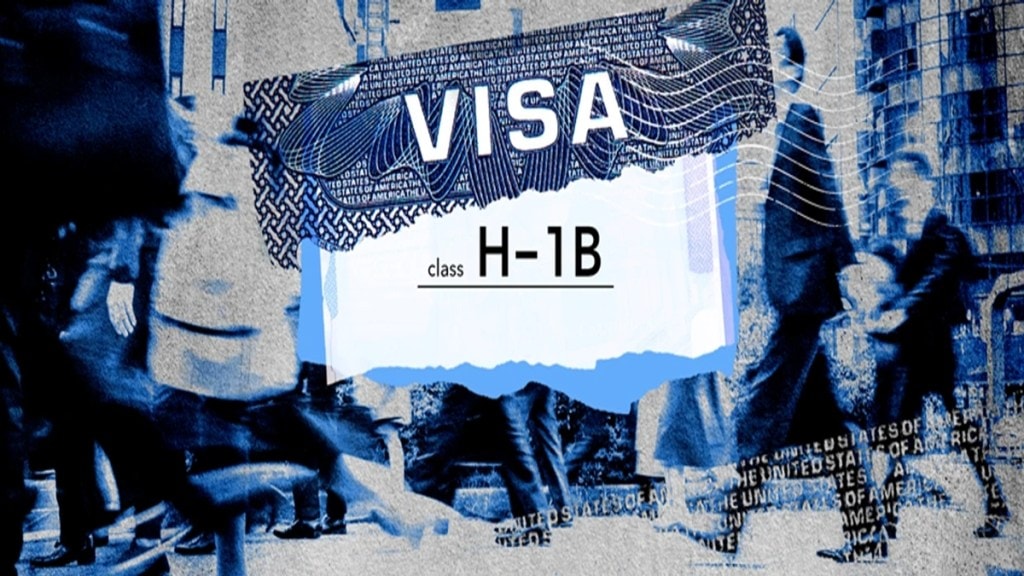H-1B visa reforms are expected to take center stage in US lawmakers’ campaign against foreign labour. Senator Jim Banks has introduced the ‘The American Tech Workforce Act’ that proposes to raise the wage floor for H-1B visas from $60,000 to $150,000, end the Optional Practical Training program, and replace the H-1B lottery with a system that awards visas to the highest bidder.
The American Tech Workforce Act
The American Tech Workforce Act bill proposes to eliminate the Optional Practical Training Program and modify requirements for H-1B visas meant for nonimmigrant workers in specialty occupations and fashion models.
The Optional Practical Training Program provides an eligible F-1 student visa holder with temporary employment authorization before or after completion of the student’s studies, or both.
Under this bill, the employer must pay an H-1B visa holder the greater of:
(1) the annual wage paid to a U.S. worker who did identical or similar work in the two years before the employer’s H-1B application; or
(2) $110,000, with this amount to be adjusted annually for inflation.
Currently, the H-1B visa holder must be paid the greater of (1) the employer’s actual wage for similarly qualified U.S. workers in the specific position, or (2) the local prevailing wage for the occupational classification.
The bill also removes a requirement for the employer to provide the visa holder with working conditions such that the working conditions of similarly employed workers will not be affected.
The bill imposes limits on assigning H-1B visa holders to third-party work sites, such as limiting the visa validity period to one year if the visa holder performs any part of their assignment at a third-party work site.
The bill requires the H-1B applications with the highest listed compensation to be granted before those with lower listed compensation.
H-1B Visa Reforms
Senator Jim Banks thinks it’s time for American workers to be prioritized over foreign workers who are taking advantage of H-1B visas to import cheap labor. Banks on X shared a post of Breitbart News, mentioning the introduction of the American Tech Workforce Act.
The proposed measure increases the minimum H-1B salary to $150,000 and reorganizes the H-1B visa system. These reforms are expected to primarily affect IT firms that frequently utilize lower-cost foreign workers, potentially to the detriment of American workers.
“This bill puts American workers first. Corporations rigged the system to flood the country with cheap foreign labor and drive down wages,” Banks told Breitbart News in an exclusive statement.
Are H-1B Program Anti-American?
Corporations are reportedly exploiting the American immigration system to the detriment of domestic workers and price levels, according to Banks.
Microsoft is cited as an example, having laid off 9,000 U.S. employees in July, subsequent to an earlier round of 6,000 job eliminations in 2025. Microsoft has reportedly applied for over 5,000 H-1B visas, reports Breitbart News.
The majority of H-1B visas are allocated to individuals in computer-related fields, with median salaries for software developers around $116,000.
Concurrently, the Optional Practical Training (OPT) program, intended by businesses and regulators to bypass H-1B numerical limits, supports half a million workers in the United States.
In August, Harmeet Dhillon, a prominent civil rights attorney, encouraged Americans to report instances of corporations improperly hiring H-1B visa holders.
Online criticism of the H-1B visa program was intensified by an alleged jobs-for-kickbacks scandal at Walmart, which purportedly allows C-suite executives to replace American workers with noncitizen, white-collar employees, primarily from India.
H-1B Visa Demand
About 1 million foreign graduates — mostly Indians — are retained in white-collar positions in the United States because of these two programs. At least one million Americans lose out on secure employment, good houses, and family stability as a result of this imported labor force, according to Banks.
Many Fortune 500 businesses and their Indian-run outsourcing firms make extensive use of these immigration programs. Banks, insurance firms, airlines, shops, healthcare providers, manufacturers, and, most notably, technology companies are among the most frequent users of H-1B and OPT visas.
Foreign workers utilizing the H-1B visa program are also drawn to the prospect of obtaining a U.S. green card, which offers the opportunity to become a lawful permanent resident in America.
Therefore, foreign graduates are perceived as less mobile in the job market, more amenable to extended working hours, hesitant to provide court testimony, and less inclined than U.S. graduates to challenge management on issues of innovation, safety, quality, or security.
Because the value of the dangled green cards is so huge, most of the Indian visa workers accept jobs in a U.S.-based, Indian-run, unregulated, isolated, sweatshop economy of subcontractor kickbacks, cliques, fraud, backstabbing, and blame-shifting, according to numerous Indian sources who speak to Breitbart News.
